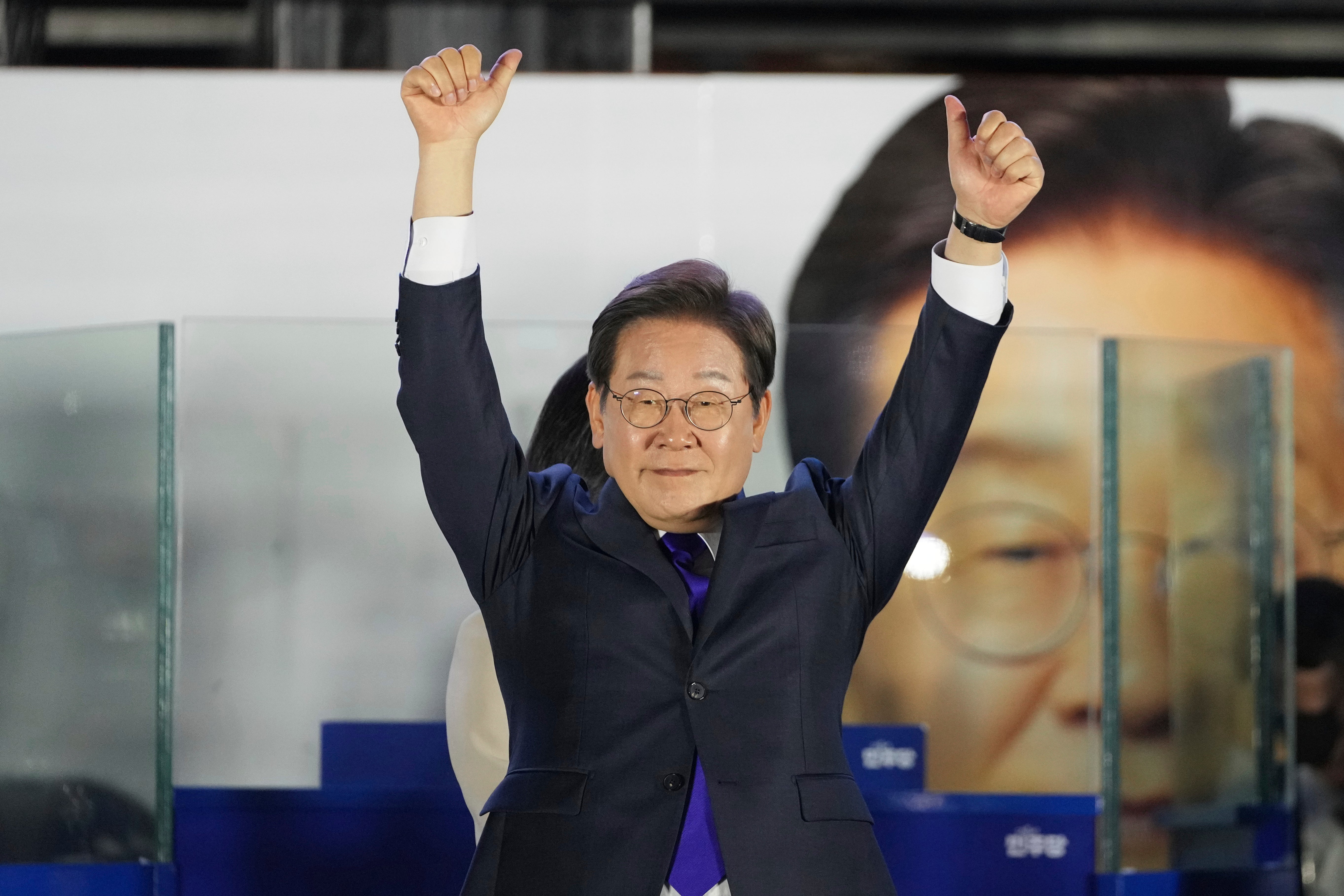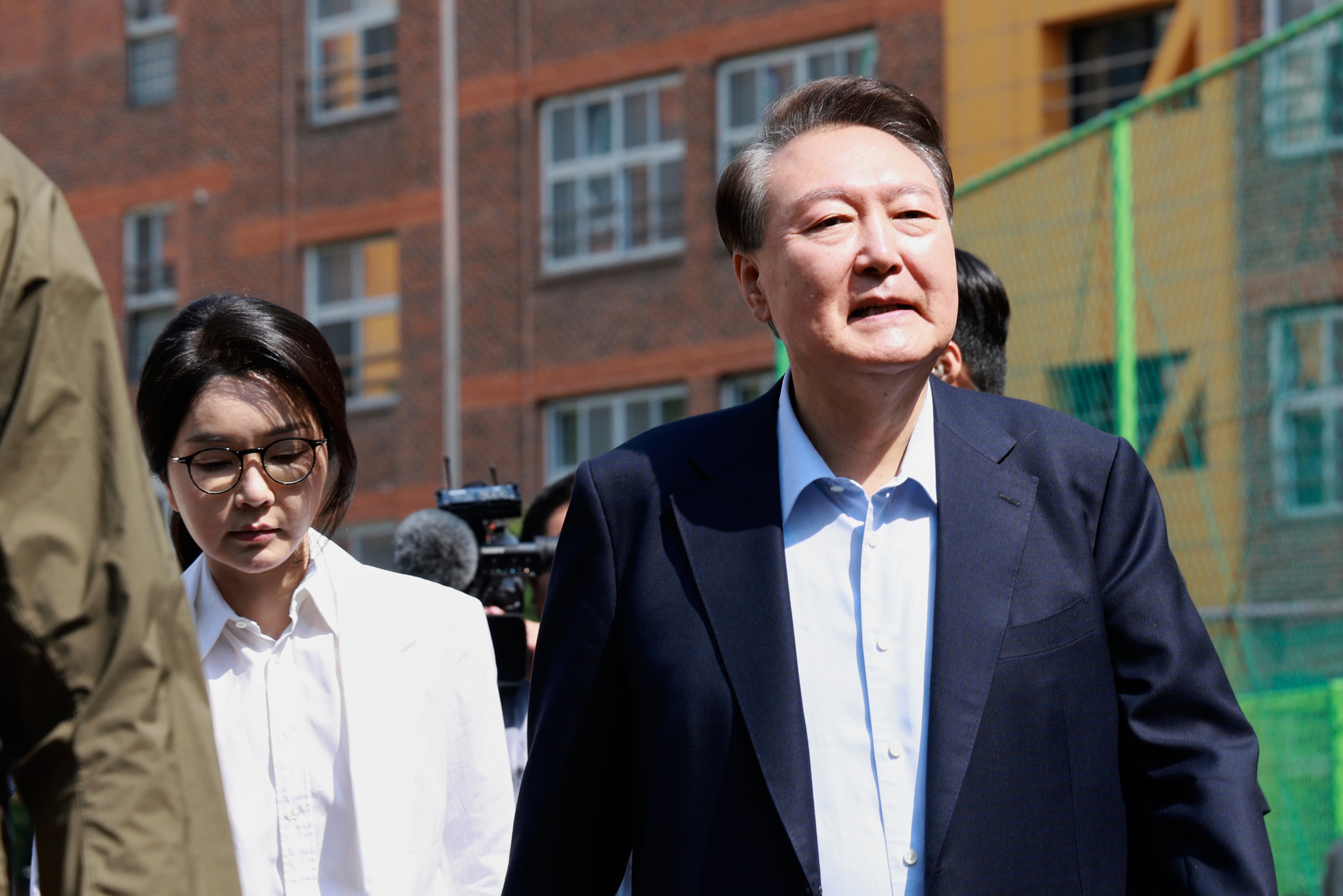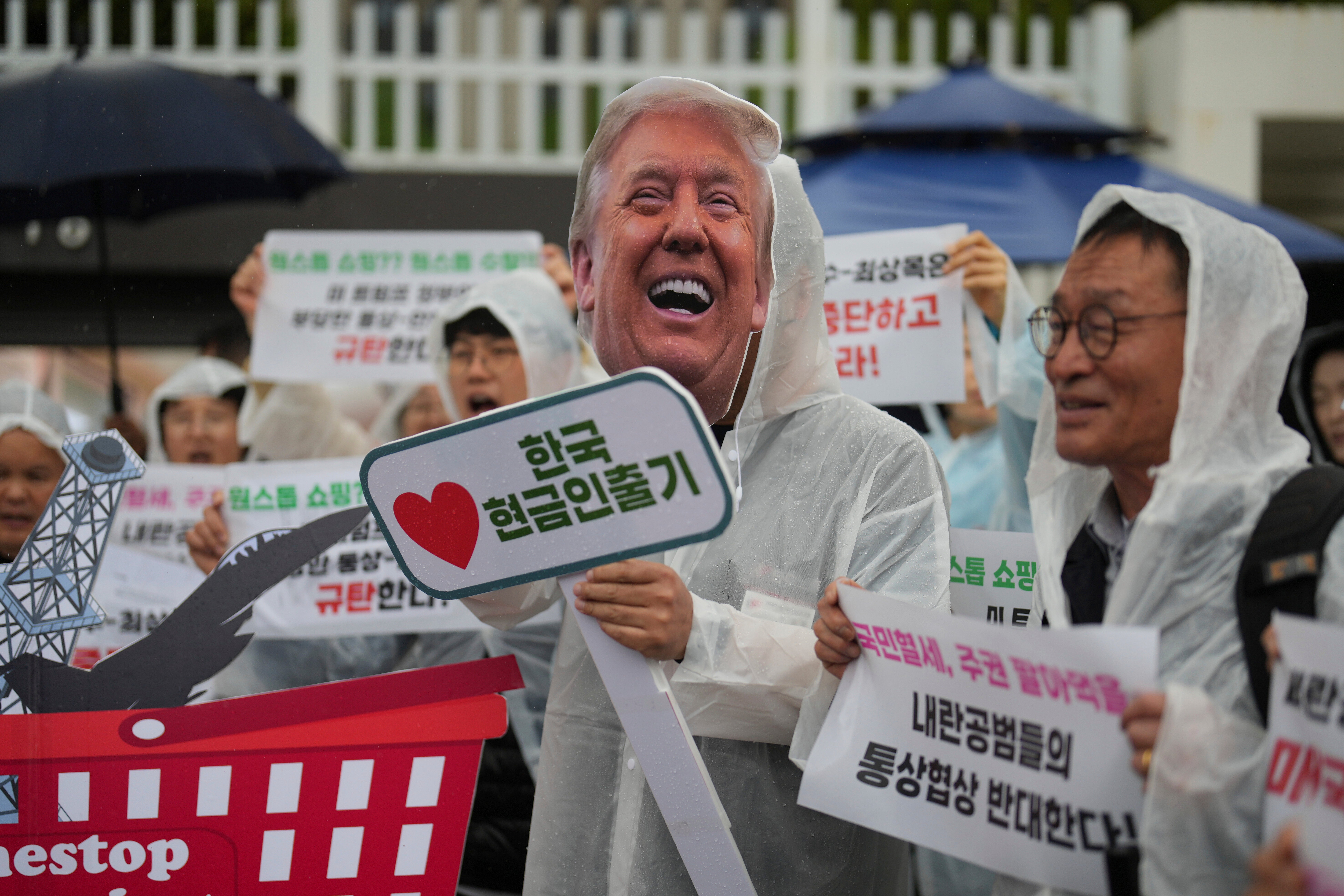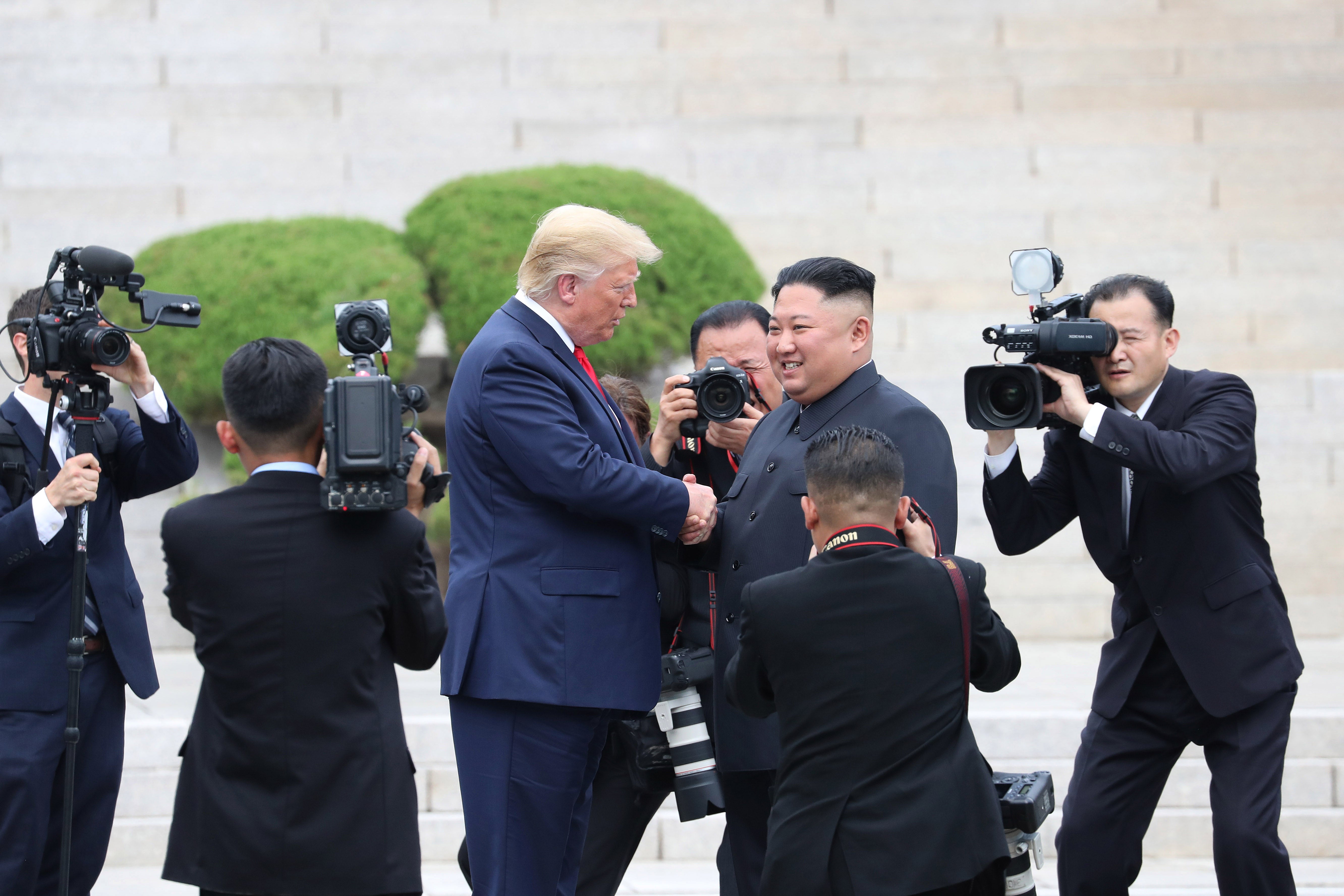
More outspoken in his populist rhetoric than his predecessor Yoon Suk Yeol, Lee Jae Myung is a seasoned political maverick and, most importantly, a survivor. He has dodged an assassination attempt, a string of legal challenges, and the threat of martial law to secure a resounding election victory. South Korea’s new president now faces his toughest political test yet: facing the country’s domestic and international economic pressures head-on.
Tuesday night’s results make Lee, 61, one of the most powerful presidents in South Korea’s recent history, with a decisive public mandate and a large parliamentary majority behind him.
Final tallies show Lee, the candidate for the liberal opposition Democratic Party, won with an 8.27 percentage points margin over his conservative rival Kim Moon Soo, who failed to shake off the damage done by his People Power Party’s leader Yoon and December’s ill-fated attempt to impose martial law.
Lee took 49.43 per cent of votes while his rival Kim won 41.15 per cent of votes. And though that margin is narrow than indicated by opinion polls and even Tuesday night’s exit poll, analysts are calling the result a “watershed moment” in South Korean politics, a full stop after six months of constitutional crisis.
Lee’s presidency started immediately with his inauguration on Wednesday – due to the extraordinary nature of his predecessor’s impeachment. He must now tackle the most daunting set of predicaments a new South Korean leader has faced in nearly three decades, with the last six months exposing a deeply fractured and destabilised country, as well as taking an economic toll.

“Lee Jae Myung’s election as president is a watershed moment in South Korean politics, ending six months of turbulence for democracy since former president Yoon’s errant declaration of martial law,” said Leif-Eric Easley, a professor at Ewha University in Seoul.
“He has proved to be a political survivor, after legal scandals, questionable opposition tactics, and even threats to his life,” he tells The Independent.
Exactly how Yoon will approach South Korea’s troubles remains uncertain – his victory is not thanks to any particular policy proposals, but rather a result of the People Power Party’s spectacular collapse. After Yoon’s impeachment and removal, the conservative party fell into disarray and controversially failed to merge its own campaigns, with former prime minister and acting president Han Duck Soo splitting the right-wing vote.
Lee must now try and bring the country together while also dealing astutely with the US – Seoul’s most important military ally – and his American counterpart.
“While this means a change from a conservative government to a progressive one, whether we will see as dramatic of a change in policies from what we have seen in some of the past presidential transitions, is unknown,” Naoko Aoki, political scientist at RAND, told The Independent.

“Whether Lee’s election would lead to a less politically divided South Korea is uncertain. One of Mr Lee’s challenges is to unify the country at a time of deep political polarisation.”
Sojin Lim, co-director of Korean Studies at the University of Central Lancashire, said it is notable that the conservative candidate Kim still secured over 40 per cent of the vote, despite seemingly mainstream concerns that voting for him might be seen as normalising the 3 December martial law attempt.
“This underscores the deep divisions in South Korean society, which Lee must address alongside urgent domestic and international challenges,” she says.
In his first speech after his election victory, the former human rights lawyer called it "judgment day" against Yoon's martial law attempt and vowed to heal to nation from the fallout of the political crisis that saw supporters of the former president pitted against his opponents.
“It is time to restore security and peace, which have been reduced to tools of political strife; to rebuild livelihoods and the economy damaged by indifference, incompetence and irresponsibility; and to revive democracy undermined by armoured vehicles and automatic rifles,” Lee said.
“No matter whom you supported in this election, I will serve as a president for all to embrace and serve every citizen.”
Then there is the matter of Donald Trump, who has not only hit South Korea’s export-driven economy with hefty tariffs but also demanded that it pay more to keep American troops on its soil.
Seoul’s longstanding military ties with Washington did not spare South Korea from the so-called reciprocal tariffs imposed by Trump on countries with wider trade imbalances with the US. South Korea was hit with a sizeable 25 per cent tariff on all Korean imports in April, on top of 50 per cent tariffs on steel and cars – its two biggest industries.

Lee now faces a rapidly-approaching deadline to strike a deal with the US before the end of the Trump administration’s 90-day pause on the reciprocal tariffs programme.
On the campaign trail Lee had denounced the second Trump presidency as the “law of the jungle”, but more recently he has struck a reconciliatory tone.
“I will crawl between his legs if necessary, if that’s what I have to do for my people,” Mr Lee said this week about Trump. “But I am not a pushover, either. South Korea also has quite a few cards to play in give-and-take negotiations.”
Lee is likely to follow a more balanced foreign policy approach than the previous administration, centred on maintaining close ties with the US while improving its relations with Beijing, says Barbara Kelemen, associate director and head of Asia at security think-tank Dragonfly.
“On the issue of tariffs, the new government will probably be strongly incentivised to conclude a deal with the US as soon as possible; its economy has been under pressure since martial law was imposed last December. However, there appears to be a lack of clarity among South Korea and US officials around the ongoing tariff discussions which is probably the reason behind recent comments by President Lee that he will seek more time for talks,” she tells The Independent.
Prof Easley said Lee would likely try to “bond with President Trump” using their shared similarities, such as an assassination attempt in 2024 and overcoming legal battles to win an election.

He has to “get the US alliance beyond threats of tariff hikes and troop reductions, allowing an urgently needed refocus on military deterrence, economic security, and coordinated diplomacy”.
Trump has floated the idea of cost sharing for US troops based in South Korea on his platform Truth Social, saying he had discussed “payment for the big time Military Protection we provide to South Korea” with then-acting president Han Duck Soo.
“We are bringing up other subjects that are not covered by Trade and Tariffs, and getting them negotiated also. “ONE STOP SHOPPING” is a beautiful and efficient process!!!” Trump wrote.
South Korea is home to about 28,500 US troops under the command of US Forces Korea, and a withdrawal would raise serious questions over the country’s defence and deterrence in the face of North Korea’s nuclear expansion and tensions in the Korean peninsula.
In a departure from his predecessor’s policies, who took a hardline approach on North Korea and China from day one, Lee has said he will seek to mend ties with Kim Jong Un and Xi Jinping, the leader of Seoul’s largest trading partner.
However, that is not likely to sit well with the US – especially when it comes to China.
Kelemen says it would be a point of contestation that is likely to emerge, and “it is plausible the US would seek guarantees from Seoul that the country will limit its relations with Beijing”.
“This is especially in light of recent press reports that Beijing was able to obtain classified information on US-South Korea operational plans of combined exercises through a collaborator in the South Korea military.”
Lee inherits an economy that is expected to grow this year by a grim 0.8 per cent, the weakest since 2020. The central bank last week halved its economic growth outlook from the previous projected growth of 1.5 per cent.
Lee’s personal troubles will also compound his challenges as he enters office with a number of active legal cases hanging over him.
The president, who was raised in poverty in a blue-collar family in Seongnam, faces multiple criminal cases, including allegations of corruption, abuse of power, and election law violations.
He has denied wrongdoing in all the cases and called the legal proceedings a witch hunt.
“Unresolved legal cases suggest that the end of the presidential election does not mark the conclusion of the political and economic crisis triggered by the martial law incident in South Korea,” Lim says.







